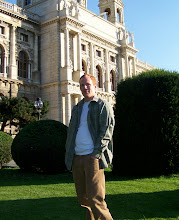My mom came up to visit recently, and we got into a discussion about medicine. We had just finished searching for some Essential Oils and were having a discussion. She mentioned one line of products meant to prevent disease called the "Thief" line - it was apparently used by graverobbers to prevent disease around the turn of the millenia.
"Now, see," I told her, "I don't understand how marketing campaigns like that work. Why should anyone care what people used before we had any understanding of disease, germs, viruses...it doesn't make sense to me that anyone would care about medicine from so long ago."
I could tell right away she disagreed, I'd maybe even offended her a bit. "Hmm, ancient medicine is valuable because it's natural, and it's been tried and it works. It's harder for me to understand why people would want to put all of these chemically altered substances into their body in an attempt to get well."
The discussion continued, but the truth is I felt we both had valid points. It seems silly to ignore progress, to ignore what we have gained biological knowledge that is undoubtedly helpful in diagnosing and curing disease. On the other hand, often if something isn't understood or proven scientifically, it doesn't receive recognition. The fact that something "works" isn't generally enough - we have to know why and how, or we're eager to write it off as the placebo effect or even to just write it off completely.
There's also the motivation of profit. It's unfortunate that profit is the driving force behind a good part of medical research, because it means that health isn't necessarily at the forefront of motivation. It means that there is at least a possibility that research will be performed that doesn't search for a cure but for a product that masks the symptoms (the advantage being that if a disease is cured, there's no more need to buy expensive medication). Ancient medicine wasn't motivated in any sense by a need for profit - it's limitation was science and understanding.
Wednesday, March 28, 2007
Subscribe to:
Post Comments (Atom)


No comments:
Post a Comment